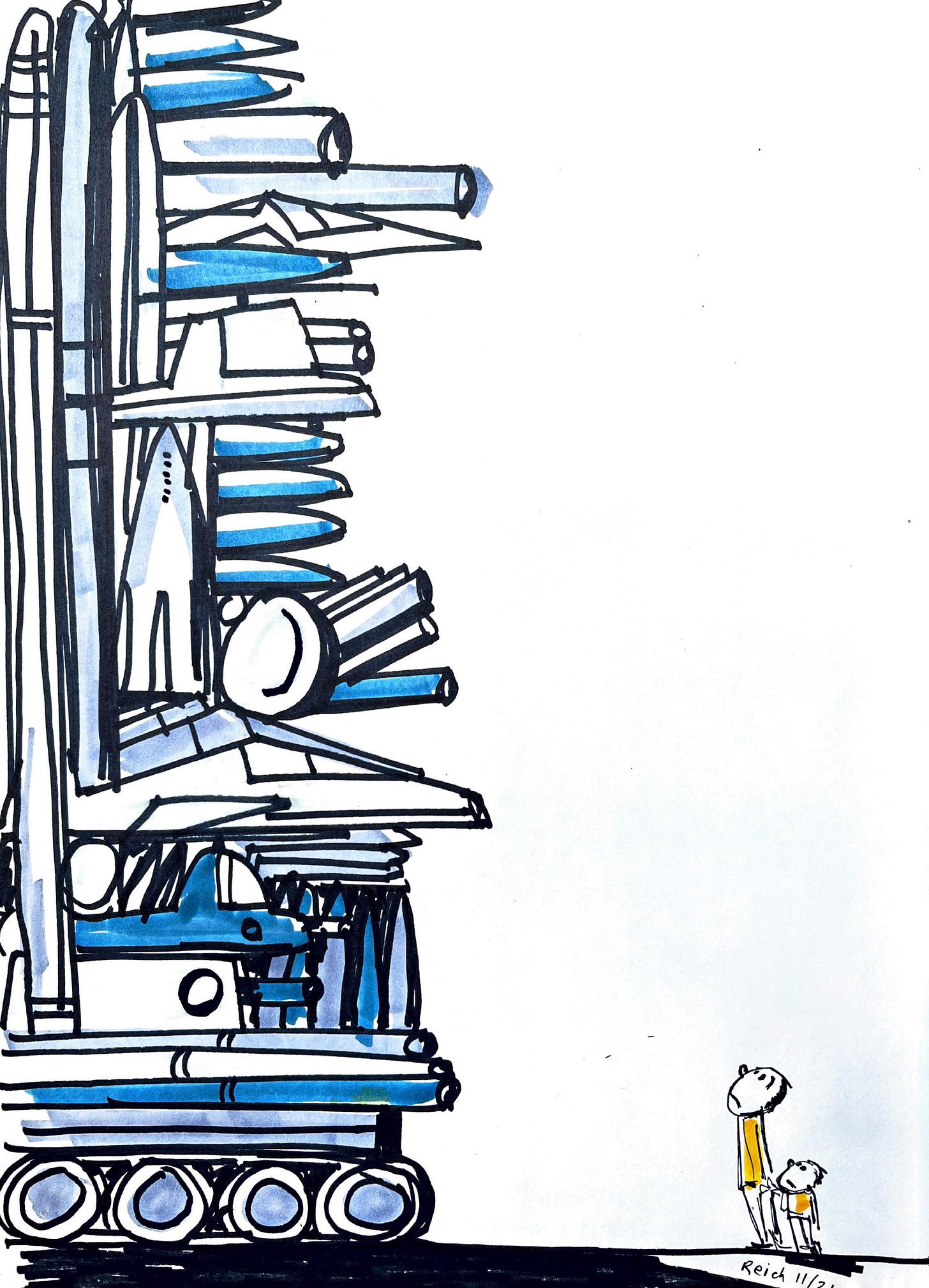Friends,
Congress is on track in the coming week to give final approval to a national military budget for the fiscal year that is expected to reach about $858 billion — or $45 billion more than President Biden had requested and 8 percent more than last year.
This is its highest level of military spending (adjusted for inflation) since the peaks in the costs of the Iraq and Afghanistan wars between 2008 and 2011. It’s the second-highest military spending since World War II. It’s more than the budgets for the next 10 largest cabinet agencies combined. It’s larger than the military spending of the next 10 largest military powers in the world combined.
Expect it to be even more. Congress is considering an extra $21.7 billion for the Pentagon to resupply materials used in Ukraine.
Don’t fall for the myth that this humongous sum is going to our troops. What’s spiking is spending on weapons (including a 55 percent jump in Army funding for new missiles and a 47 percent jump for the Navy’s weapons purchases).
All told, more than half of this giant spending budget is going to for-profit companies (such as Lockheed, Raytheon, Boeing, General Dynamics, BAE, and Northrop Grumman) whose stock prices are surging. The profits are going into executive pay, shareholder dividends, and stock buybacks.
This is the military-industrial complex that Dwight Eisenhower warned of *— on steroids.
And yet, there’s almost no debate. Why?
Most Americans aren’t aware of what’s happening. And many of those who do know aren’t tracking the humongous size of this relative to previous military spending. And no one is hearing any arguments on the other side.
Yes, of course, America has to worry about Putin, China, Iran, and North Korea. But before deciding to spend so much, we might at least expect some, er, discussion.
How on Earth are we supposed to believe we “can’t afford” paid family leave, an expanded child tax credit, Medicare for all, or universal pre-K when our politicians are willing to spend $858 billion on the military without batting an eye?
Worse yet: No one knows where all this the money is going.
The Pentagon just failed its annual audit for the fifth year in a row. “I would not say that we flunked,” said DoD Comptroller Mike McCord, although his office did admit that the Pentagon only managed to account for 39 percent of its $3.5 trillion in assets.
The U.S. military is the only U.S. government agency to have never passed a comprehensive audit.
Cost-overruns are legion. The Pentagon’s failed F-35 program has exceeded its original budget by $165 billion to date. It’s projected to cost more than $1.7 trillion.
“Guns versus butter” is the old story. Now it’s extraordinary bloat versus unnecessary misery for American families struggling with a cost-of-living crisis exacerbated by inflation.
A recent study by the Federal Reserve Bank of Dallas found that most American workers have become poorer over the past year because their real wages haven’t kept up with inflation.
Nearly two-thirds of Americans are living paycheck to paycheck.
So back to my question: Why no real debate?
Because support for military spending is bipartisan. No lawmaker wants to be portrayed as weak on national defense. Democrats have been jumping onto the military spending bandwagon as fast as Republicans.
Bipartisanship is not always good. In fact, it’s a problem when, as now, the lack of political conflict means no news. Absent political conflict, there’s no story. Without a story, there’s no debate or discussion in the media. Absent any debate in the media, most Americans have no idea what’s happening.
We’re sleepwalking through history.
___
* Eisenhower’s words from April 16,1953: "Every gun that is made, every warship launched, every rocket fired signifies, in the final sense, a theft from those who hunger and are not fed, those who are cold and are not clothed. This world in arms is not spending money alone. It is spending the sweat of its laborers, the genius of its scientists, the hopes of its children. The cost of one modern heavy bomber is this: a modern brick school in more than 30 cities. It is two electric power plants, each serving a town of 60,000 population. It is two fine, fully equipped hospitals. It is some 50 miles of concrete highway. We pay for a single fighter plane with a half million bushels of wheat. We pay for a single destroyer with new homes that could have housed more than 8,000 people. This, I repeat, is the best way of life to be found on the road the world has been taking. This is not a way of life at all, in any true sense. Under the cloud of threatening war, it is humanity hanging from a cross of iron.".













Share this post